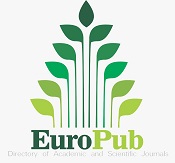Social metabolism of the post-neoliberal model (Alianza País period) of Ecuador (2006-2017)
Abstract
The concept of social metabolism analyzes the flows of materials and energy between society and the environment, evaluating human practices from a socioecological perspective. In Ecuador, the transition to a post-neoliberal model during Rafael Correa's government reconfigured this metabolism by prioritizing state intervention in the appropriation, transformation, and distribution of resources, promoting social justice and sustainability. The appropriation stage was characterized by the nationalization of strategic resources such as oil and investment in energy infrastructure, while the transformation stage focused on strengthening national development through redistributive policies and state planning. Circulation was institutionalized through the 2008 Constitution and social programs, ensuring access to basic services. However, the model showed shortcomings in the excretion stage, including economic dependence on China, environmental damage caused by extractivist policies such as the exploitation of Yasuní, and institutional corruption. Although the model made progress in social inclusion and territorial cohesion, its externalities highlight tensions between the goals of social justice and economic sustainability. The social metabolism of post-neoliberal Ecuador reflects both the achievements and limitations of an approach centered on equity.
Downloads

Downloads
Published
How to Cite
Issue
Section
License

This work is licensed under a Creative Commons Attribution-NonCommercial-ShareAlike 4.0 International License.
The Journal declines any responsibility for possible conflicts derived from the authorship of the works published in it.
The originals of the journal Acordes, published in electronic version, are property of the Faculty of Economics and Administrative Sciences of the University of Cuenca, being necessary to cite the source in any partial or total reproduction.
Unless otherwise indicated, all contents of the electronic edition are distributed under a Creative Commons Attribution-NonCommercial-ShareAlike 4.0 International License.




